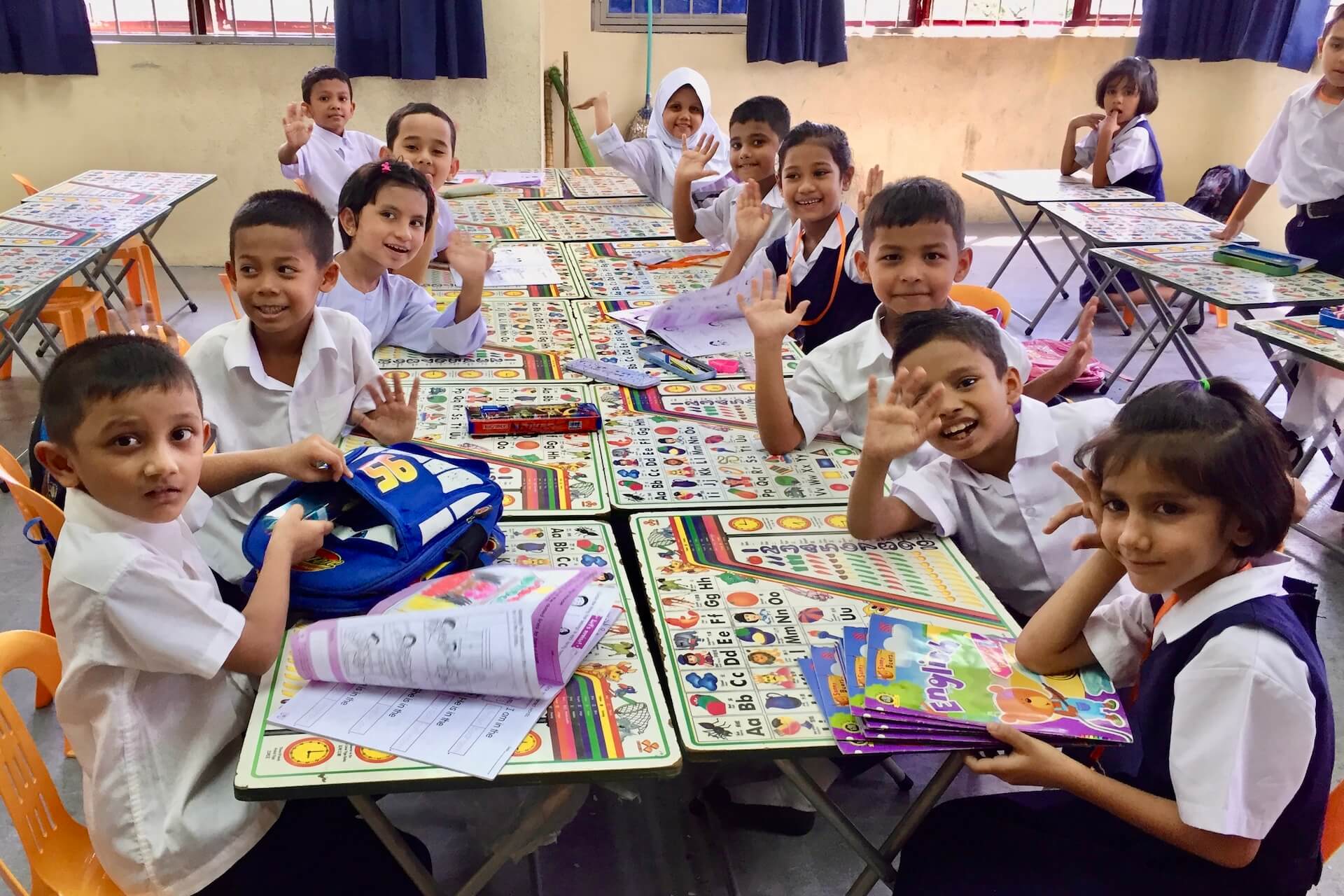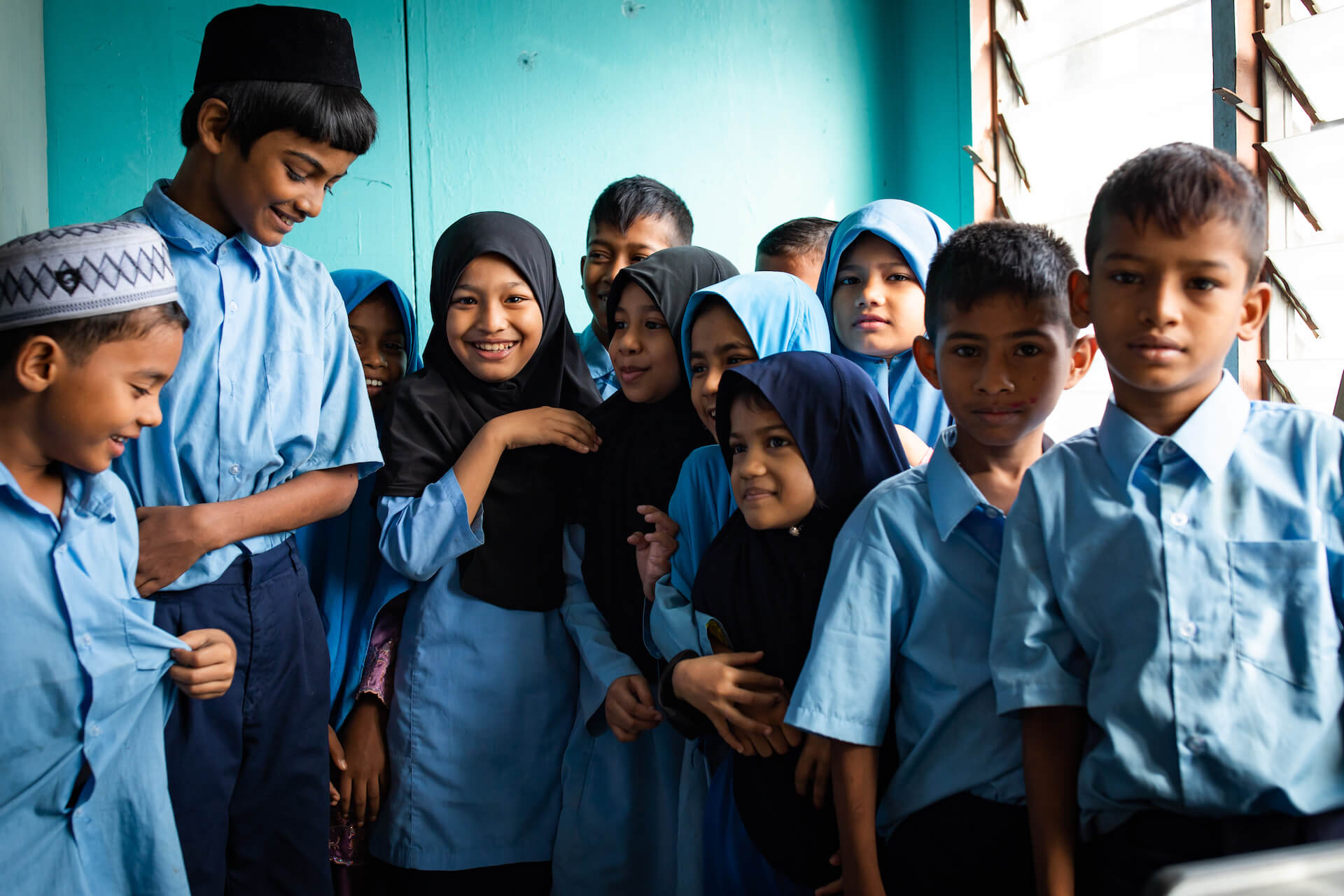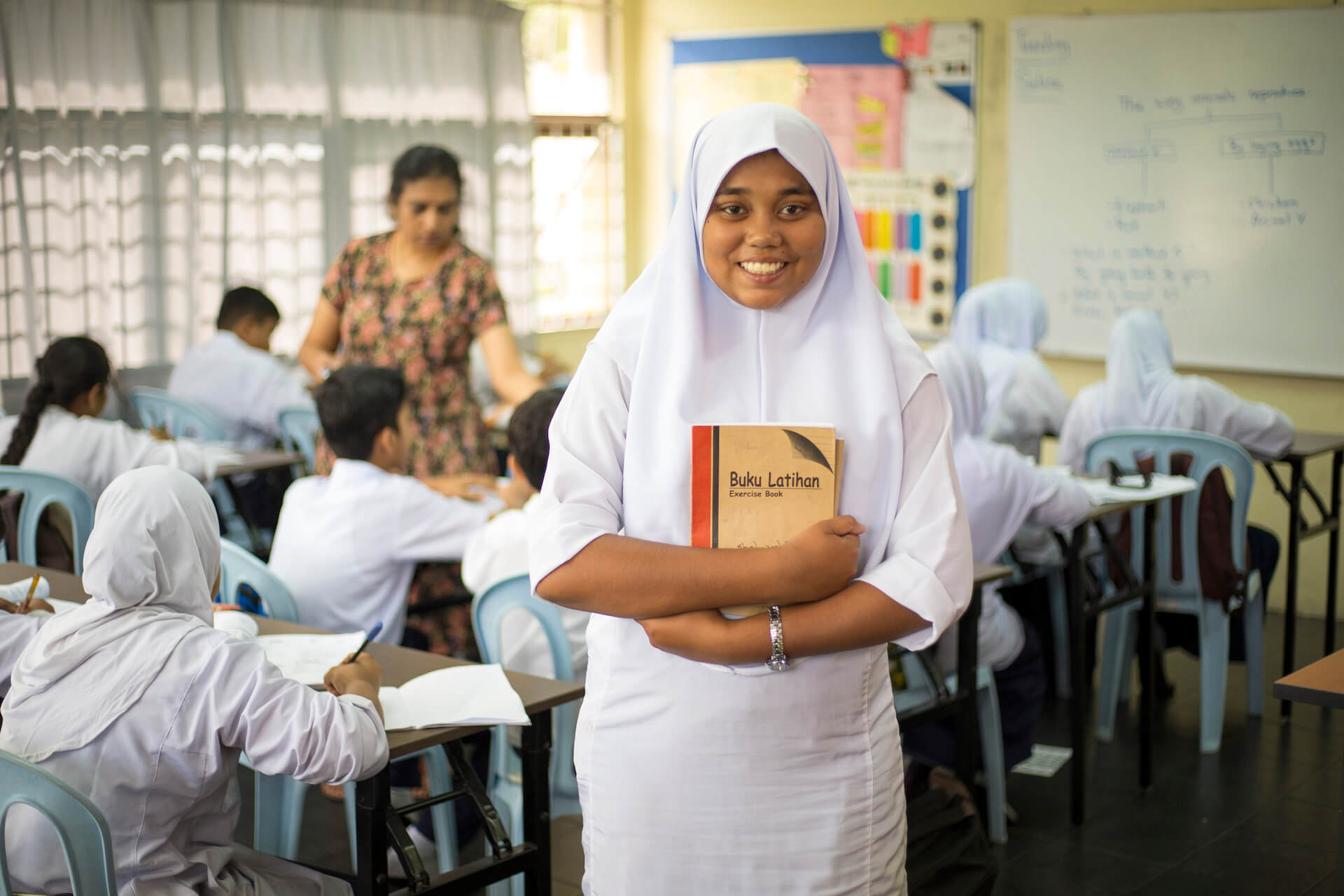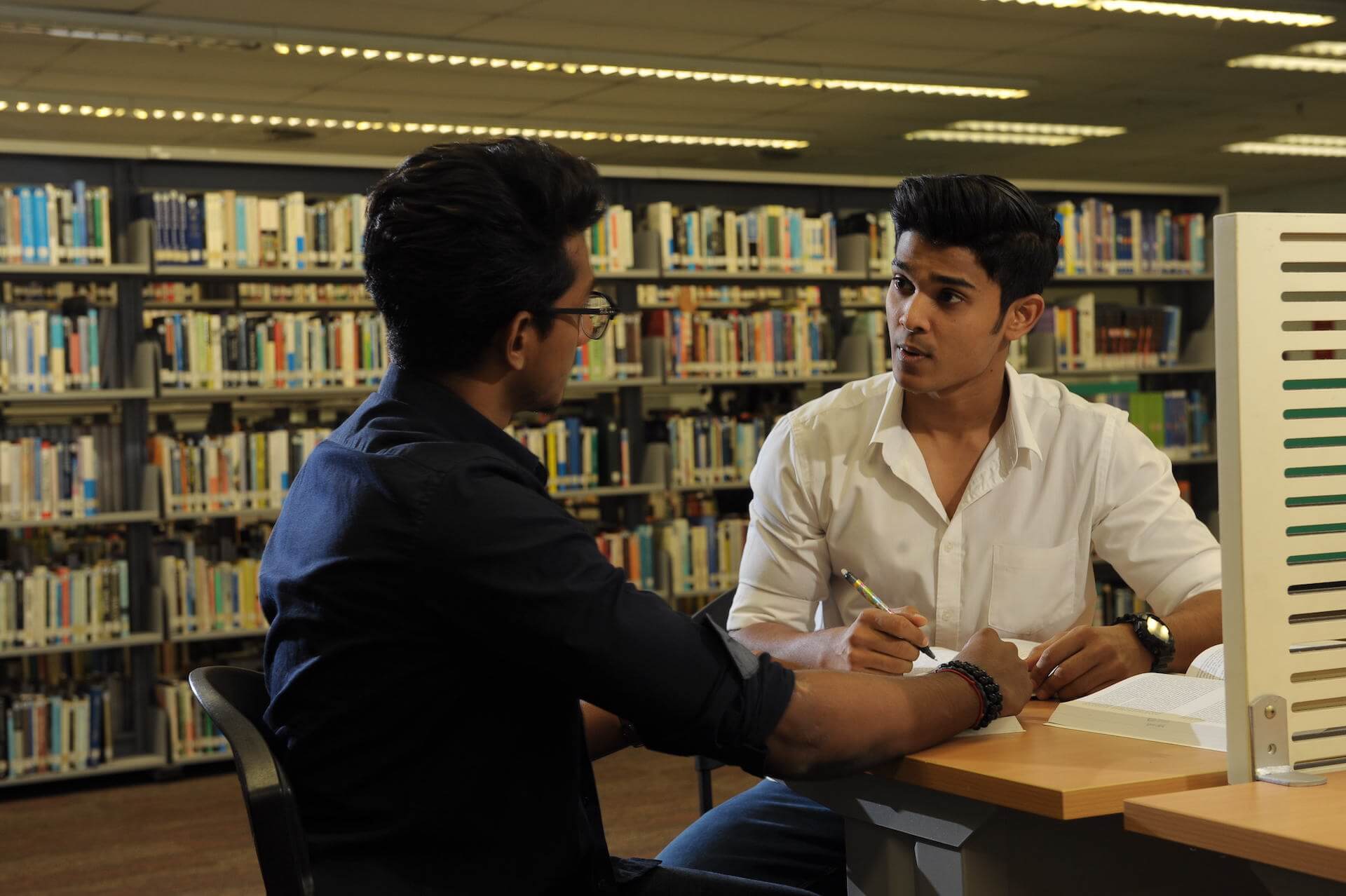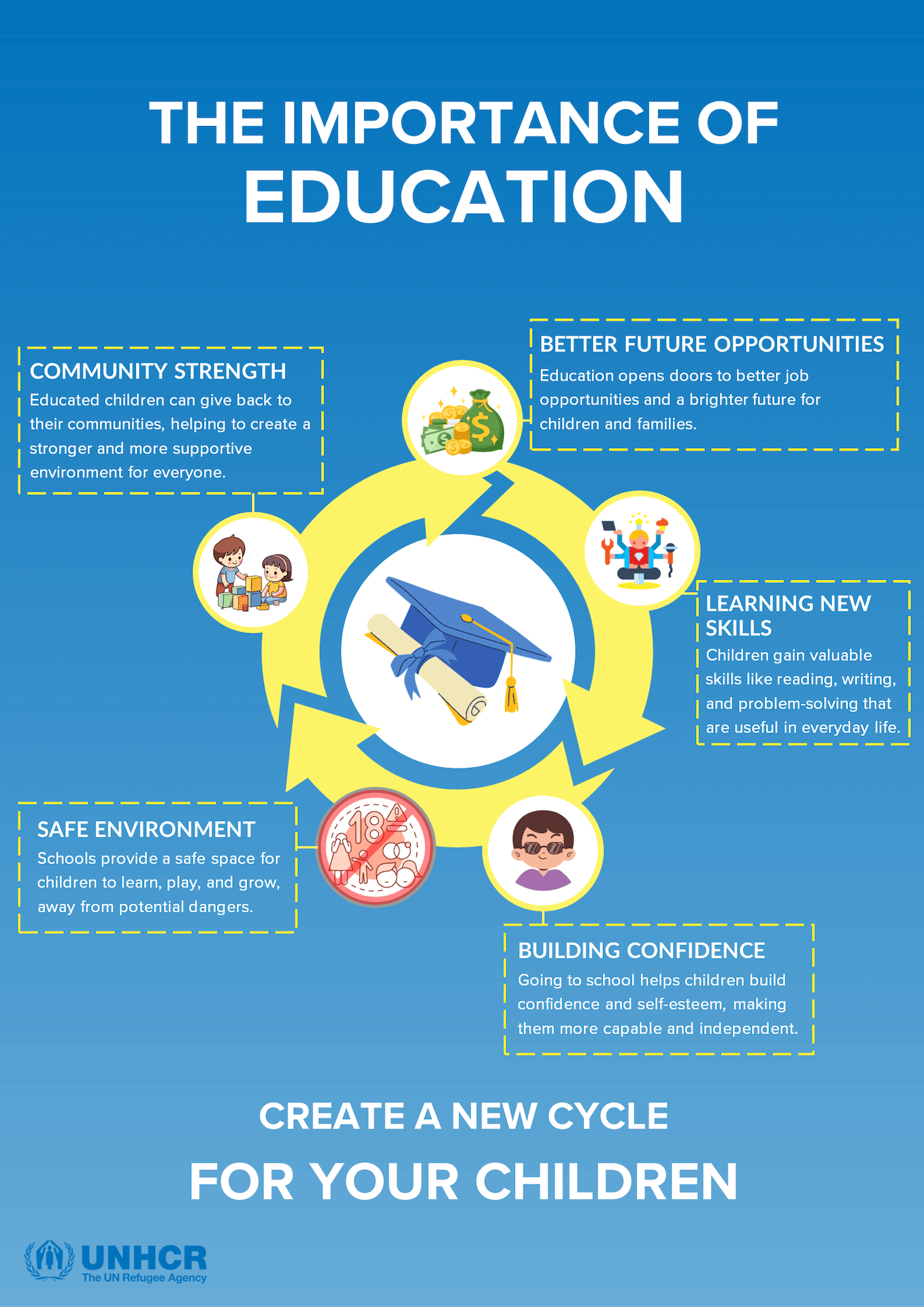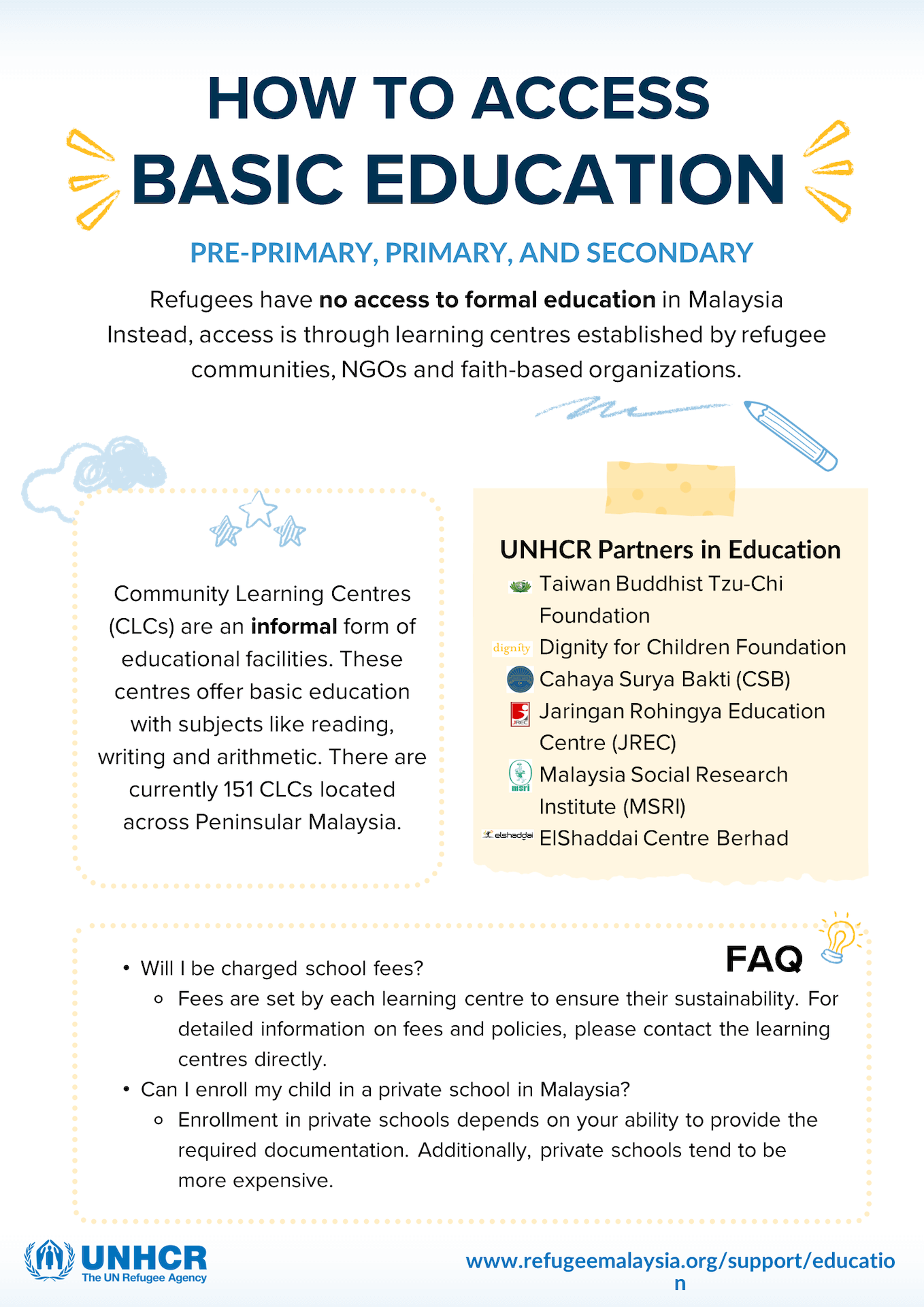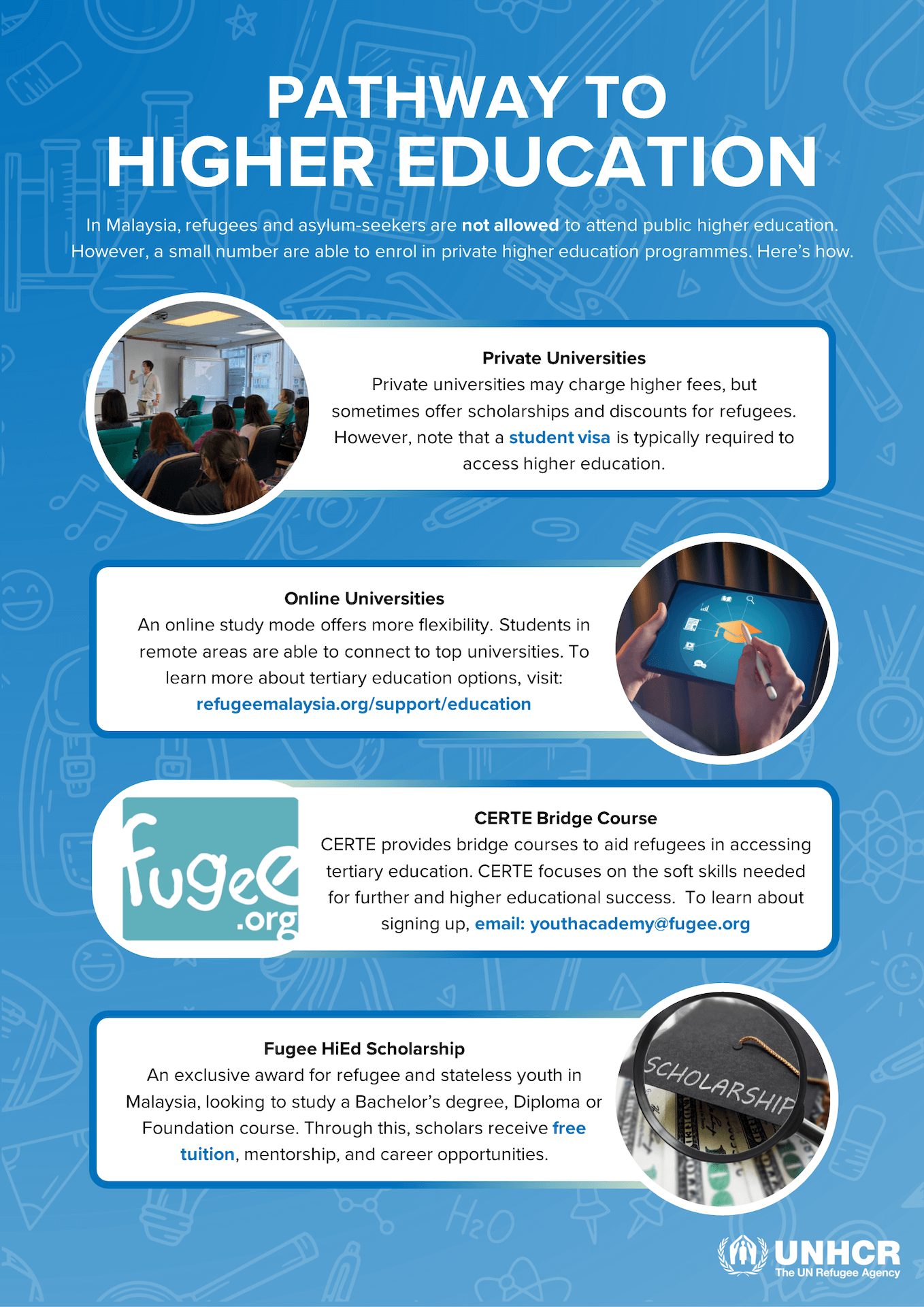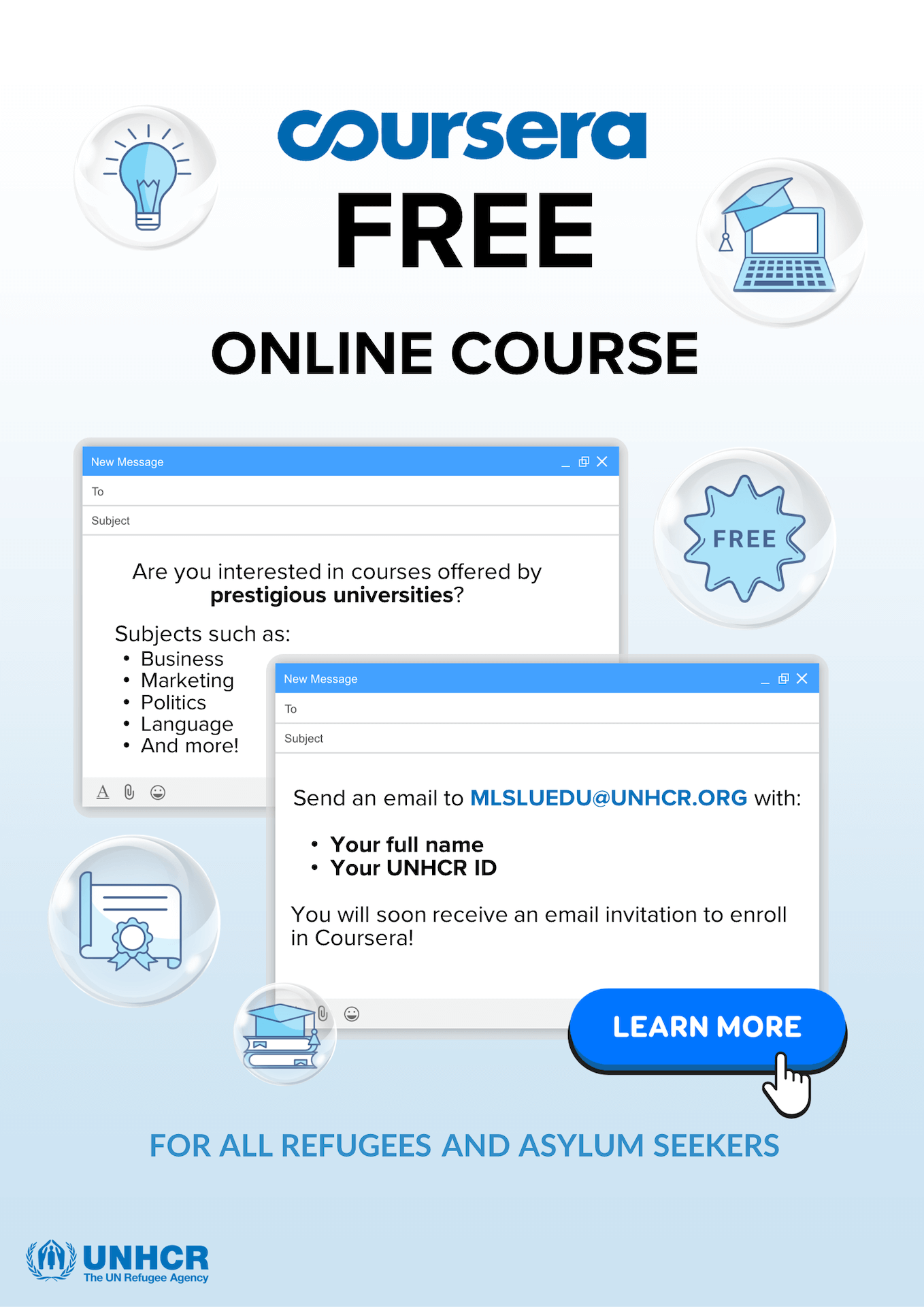Education
In Malaysia, refugee and asylum-seeking children and youth are not allowed to attend government schools at any level. They can only access education through informal community-based learning centres supported by UNHCR and its partners. There are some 150 learning centres located across Peninsular Malaysia recognised by UNHCR, but this does not mean that the learning centres or staff are receiving any financial support from UNHCR.
To locate a learning centre nearest to you, please refer to the lists below of learning centres for refugees and asylum-seekers at each level of education. Each learning centre charges different fees and has different rules and policies for enrolment. Not all learning centres charge fees. Please contact learning centres directly to find out what their fees and policies are. Due to funding constraints, UNHCR is not able to provide financial assistance for school fees.
The learning centres listed below are recognized by UNHCR based on these guidelines. If you are a learning centre seeking UNHCR recognition and inclusion in the lists below, please read the guidelines to understand the process through which UNHCR recognizes learning centres in Malaysia.
Pre-primary / Early Childhood Education
Pre-primary or early childhood education is for children aged 3 years old to 6 years old. It will prepare children for primary education.
Pre-primary education focuses on interaction with other children and teachers to improve language and social skills, and the development of basic logical and reasoning skills. Children are introduced to the alphabet and numbers and are encouraged to explore their surroundings.
Please contact learning centres directly to find out what their fees and policies are. Due to funding constraints, UNHCR is not able to provide financial assistance for school fees. The following learning centres offer pre-primary or early childhood education to refugees and asylum-seekers.
Primary / Elementary Education
Primary education is for children aged 6 to 13 years old. It teaches them reading, writing and mathematics. It also provides a foundation for learning in all areas of knowledge and personal development, preparing children for secondary education and beyond. It normally takes six years to complete.
Please contact learning centres directly to find out what their fees and policies are. Due to funding constraints, UNHCR is not able to provide financial assistance for school fees. The following learning centres offer primary education to refugees and asylum-seekers.
Secondary Education
Secondary education is for children aged 14 years old and above. It follows primary education and is where children develop values learnt in primary education and improve literacy and numeracy skills. In secondary education, children acquire deeper knowledge because they are taught by subject specialists.
Please contact learning centres directly to find out what their fees and policies are. Due to funding constraints, UNHCR is not able to provide financial assistance for school fees. The following learning centres offer secondary education to refugees and asylum-seekers.
Higher / Post-Secondary / Tertiary Education
Higher education, also called post-secondary, third level or tertiary education, is the stage following the completion of secondary education. It is an optional final stage of formal learning, where students choose fields of specialisation that will later enable them to receive an academic degree and pursue careers in chosen fields as professionals.
In Malaysia, refugees and asylum-seekers are not allowed to attend public colleges and tertiary institutions. A small number of refugee youths have been able to enrol in post-secondary and higher education programmes at private colleges and universities. Although private colleges and universities charge higher fees, they sometimes offer scholarships and discounted fees for refugees. UNHCR has formed partnerships with private tertiary institutions, such as with the Brickfields Asia College (BAC) Education Group Make It Right Movement. Please visit Make It Right Movement for more information on the courses and opportunities available at BAC.
Some educational institutions outside Malaysia also offer scholarships for refugees located anywhere in the world, and occasionally may provide support to scholarship winners to travel to and study in the country of the educational institution. Please visit Scholarship Opportunities for Refugees for information on these scholarships, and search here for scholarships available to refugees in Malaysia.
UNHCR has also strived to increase learning opportunities through connected learning, which is an innovative form of higher education that uses technology to combine face-to-face and online learning. It enables students living in remote areas or who do not otherwise have access to higher education to connect with top universities. Since 2010, over 25,000 refugee learners in 23 countries have participated in connected learning programmes on platforms, such as Coursera. Please visit Coursera for more information on how refugees anywhere in the world can access Coursera.

